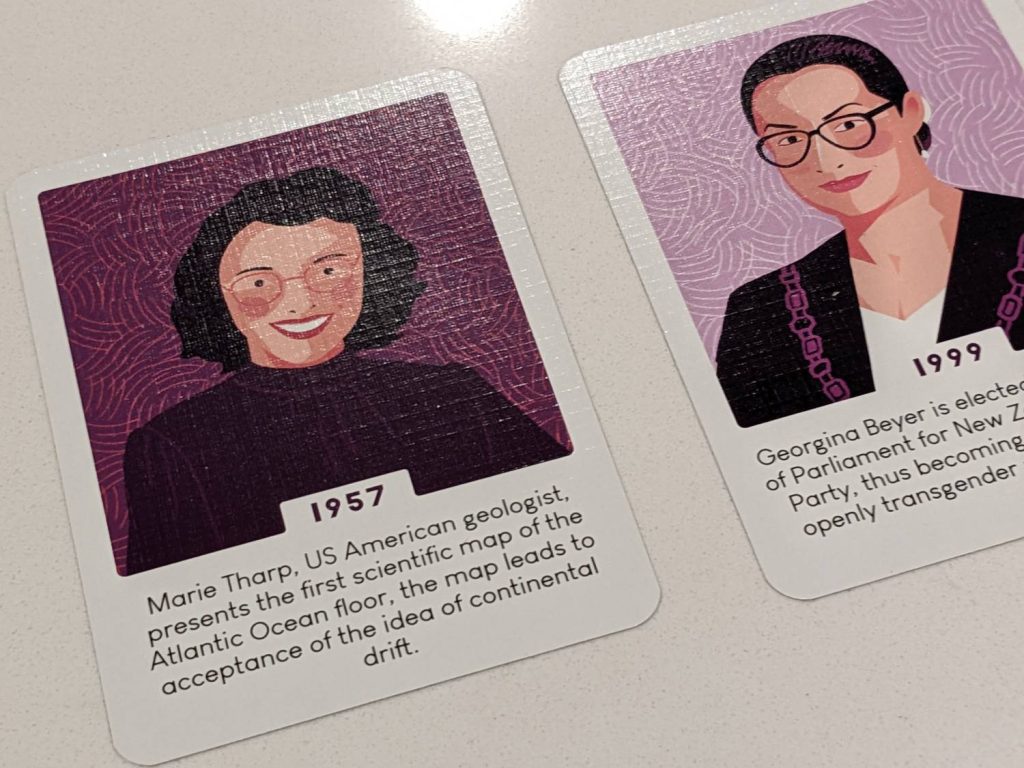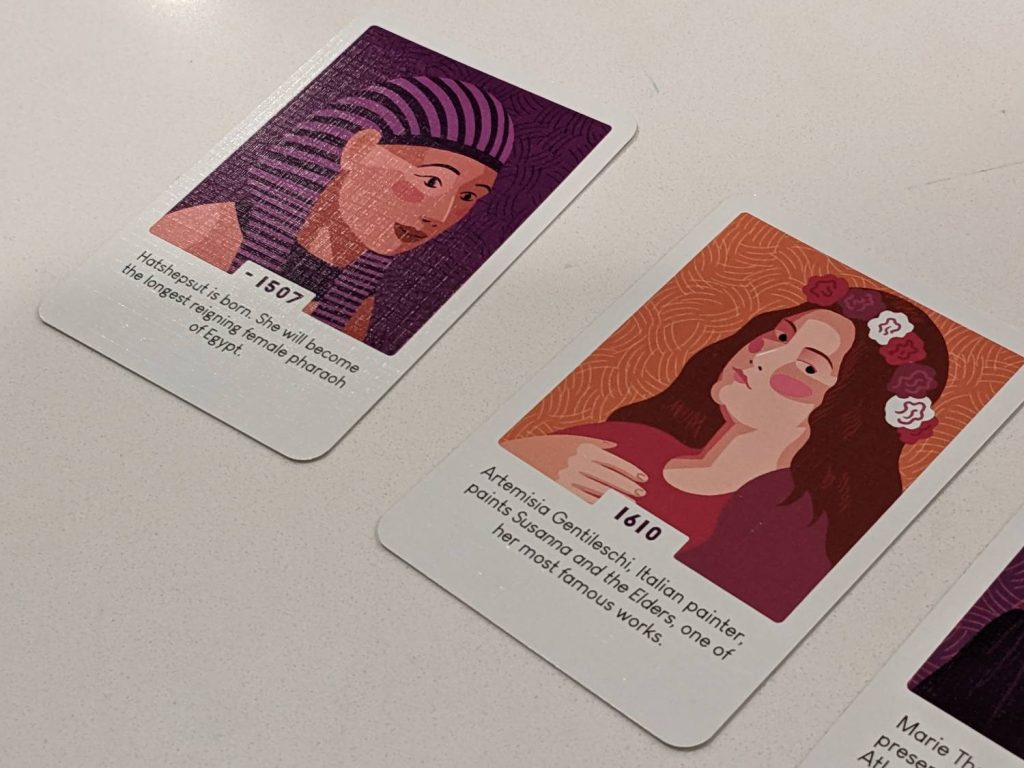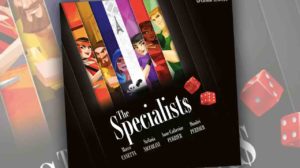Disclosure: Meeple Mountain received a free copy of this product in exchange for an honest, unbiased review. This review is not intended to be an endorsement.
We Can Play: Women Who Changed the World (2022, Julibert) was on my radar earlier this fall, thanks to the SPIEL ‘22 preview on BGG. The artwork was the hook, but as a Diversity and Inclusion practitioner (that’s my day job), I’m always hunting for more games that feature women and people of color as the focus of play.
After getting this to my game table a few times recently, I think I’m of two minds with We Can Play. I am truly grateful that it exists, and…it’s not really a game.

Women, Front and Center
As a coffee table attraction, you will likely keep We Can Play out where everyone can marvel at the game’s 101 illustrated cards. They are beautiful, and the color palette is what I love most about these gorgeous pieces of art.
The cards feature prominent women from all walks of life across a wide spectrum of recorded history. I had a card featuring Hatshepsut (1507 BC) in a recent game alongside another player who drew Kamala Harris’ card from when she took office as the Vice President of the United States in January 2021.
It is this spectrum that makes We Can Play difficult to categorize. You see, the rules here are simple: all players have a “reference” card, a first card in a tableau that requires seven cards in chronological order to win. On a turn, a player reads the text on the top card of the draw deck, detailing the exploits of a prominent woman in history. (The back of each card features the same artwork and text, but also includes the year when the card’s moment took place.)
Looking at their tableau, the player has to decide where that top deck card would fit in the tableau’s timeline.
Sometimes, this is quite easy. If you have Rosa Parks (1955) and Kamala Harris in your timeline, then you draw Murasaki Shikibu (“…[wrote] one of the world’s first novels”, says the flavor text), you are probably going to use logic to guess that this took place before 1955. (The year 1010, to be exact.)
On each turn, after taking on one new card, you have the choice to push your luck by taking a second card. If you place this second card incorrectly, you lose all the cards in your tableau. But I have found that unless the top card is something obvious (and by “obvious”, I mean “obviously very old, or very recent”), a player will pass and let another player take their turn.
Now, adding an option to let a player run the table, placing all seven cards without a miss? That might be interesting, but it also means that no other players would take a turn if the cards shook out just right. (We Can Play’s solo mode does let a player try to run the table. If you can get seven cards placed consecutively without a timeline miss across three tries, you win.)

The Learning
I don’t think We Can Play is great as a game. But it is excellent as a conversation-starter learning aid, one that might fit best as a way to test the knowledge of students in a classroom. The best place for We Can Play: a learning game in an eighth-grade history class during March for International Women’s Day.
Some of the cards in We Can Play feature names you’ve probably seen before if you spent any time listening in school: Cleopatra, Ruth Bader Ginsburg, Helen Keller. But most of the cards feature names I had never seen before, and that’s where the magic of We Can Play comes to life. Do you know Yu Chui Yee? Ada Lovelace? Boudica? The Trung sisters?
I didn’t know any of those and even leaving one of these cards on the desks of students in a classroom would lead to a very rich discussion of the depicted person’s respective place in history.
As one player said after a recent game of We Can Play: “I will definitely buy this as a gift for my mother-in-law.” He followed this by describing that he wasn’t planning to buy this for her to play, but instead to have with her magazines for guests to read at her home.
That’s where I am as well. I’m glad to own a copy of We Can Play, but it won’t reside on my game shelves. It’s just not a game that I would return to try. But I want my kids to have We Can Play around near their play area, or on my living room coffee table for visiting family to see. The information is important, even if the game elements are a miss.











Add Comment